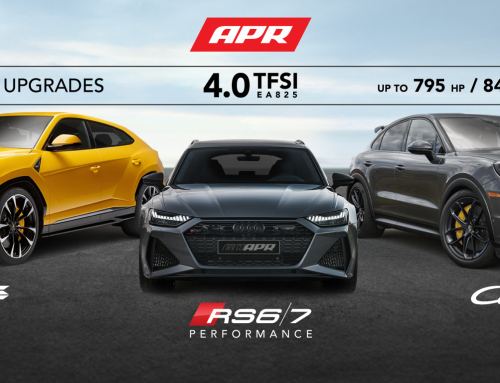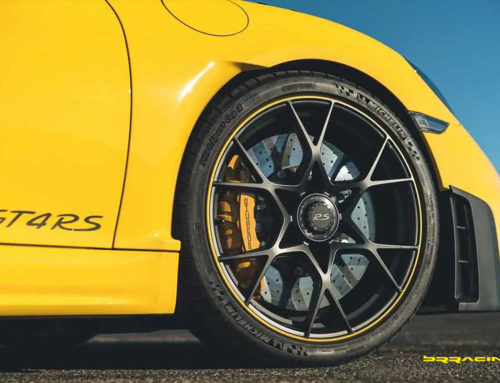Each year, JD Power researches hundreds of thousands of owners on their experiences with their car. The J.D. Power 100-Point Score rates vehicles based on quality, dependability, performance, depreciation and the dealership experience. The survey is not the experience in just one year, but the totality of the experience over the last three (3) years (2016, 2017, 2018)
Over the years we have been doing service, and servicing your cars, we have seen three trends in the reliability of the cars we serve. We serve predominantly the European based manufacturers (Audi, BMW, Mercedes, MINI Cooper, Porsche, Ferrari, and Aston Martin), but we also are starting to work on some Ford (Mustang’s, Raptor’s, F-150), Chevrolet (Camaro’s, Corvette’s). From 1996 – 2006, the reliability of almost all cars was not high. Manufacturers were more concerned about growing their product lines, adding more new cars, truck, models, adding many new technological features, and therefore, not focussing on reliability, or serviceability.
Next, we saw from 2006 – 2013, overall reliability improved. Still not great, but no question, the focus and attention had shifted, as had the economy, and we were seeing the first influx of hybrid and electric cars.
Now, since 2014, we have seen a major shift in focus to include and improve on the reliability of the cars. The serviceability has gotten harder, not because the manufacturers have chosen to do so, but the inclusion of more features, and the push for ultimate fuel economy, has made the engine compartment a very crowded area, and very technologically complex solution.
One of the reasons though for this article, besides providing useful information to our customers, is that the reality is not what often our customers perceive. We often get the comments when working on their car, “why isn’t my car more reliable?”, or why isn’t my car as reliable as a Honda. Well, surprisingly to many, ALL EURO cars are MORE reliable than their Asian counterparts, even better than those who are being heralded recently, like Hyundia. Take a look at the results below…we hope this info is useful, but it may be a little surprising.
THE most reliable brand by a long shot is PORSCHE. This is not something new, this is continuing the trend for several years. While being some of the most sophisticated cars on the planet, Porsche has not let their focus on performance detract from their reliability. (Again, based on a 100 point score). Porsche was the only car manufacturer to have an Average in the 90’s, and almost all cars in the 90’s as well.
| Porsche | |
| 911 | 94 |
| Macan | 91 |
| Cayenne | 90 |
| Boxster | 90 |
| Cayman | 90 |
| Panamera | 84 |
| Avg | 90 |
Next best in the European car manufacturers was Mercedes. Mercedes only had one car score in the 90’s, all others were in the 80’s, showing the commitment to reliability all across their product line.
| Mercedes | |
| S Class | 92 |
| GLC | 89 |
| C Class | 88 |
| E Class | 87 |
| GLE | 87 |
| GLS | 86 |
| CLA | 83 |
| GLA | 82 |
| Avg | 87 |
BMW had taken their eye off of reliability, and focussed more on technological enhancements and car model line expansion during the 1996 – 2006 period, and we have seen much improved reliability since. The cars manufactured between 2006 – 2013 were a definite step up versus the prior period, and now that change in focus has shown in the most recent reliability results as BMW has climbed to near the top of the charts:
| BMW | |
| 7 Series | 90 |
| X6 | 88 |
| X3 | 87 |
| 5 Series | 87 |
| 4 Series | 86 |
| 3 Series | 84 |
| X5 | 84 |
| 2 Series | 82 |
| X1 | 80 |
| Avg | 85 |
Due to the far broader product line from BMW, there are a lot more cars (and more cars sold as well versus Porsche and Mercedes), but BMW also won four Quality / Reliability awards in 2018. This is the most for BMW ever.
Audi still lags their premium European car manufacturers in quality. As we have said to our customers, Audi has some of the prettiest cars across their product line, and they offer many attractive features, but reliability has never been as strong. Their results in 2018 show some significant improvement, and we have seen the same type of improvement over the last three periods (1996 to 2006 – quality not so great, 2007 – 2013, improved, and now, 2014 to present, better yet).
| Audi | |
| A5 | 86 |
| Q5 | 85 |
| A4 | 84 |
| Q7 | 84 |
| A3 | 82 |
| A6 | 82 |
| Q3 | 79 |
| Avg | 83 |
Last in our grouping of the European cars is MINI. They have always been a little off the pace in terms of reliability. The first gen of the new MINIs (R50, R52, and R53, 2002 – 2006 years), the MINI was a new model line, and included a lot of parts from other suppliers, not sourced or made in house. Due to this, the reliability of the car suffered a little. The model line changed again in 2007 (R55, R56, R57, R60), and grew, due to the initial success of the new MINI, but many of the parts were still sourced from outside suppliers. The quality in this period was much like the same as the first production series. In 2013, the MINI product line had become an overall staple in the overall BMW / MINI production, and BMW decided to move the sourcing of the parts internal, w the MINI now sporting an engine designed and developed in house. As a result, the MINI quality has improved, but not to the level of the other European suppliers (also be mindful, that a less expensive car, like the MINI, has less expensive parts, which are less reliable overall).
And, to put this in perspective, the MINI product lines is much better than Toyota or Honda (see those results later in this article). MINI also won the award for best quality in the small SUV market!
| MINI | |
| Countryman | 83 |
| Clubman | 78 |
| Hardtop | 78 |
| Avg | 80 |
So, this all begs the question….we now know how the Euro manufacturers stand in themselves, but how do they compare to the other major car manufacturers. This is not a fully inclusive list of all car manufacturers, but those that we thought either buck the current perspective when we talk to our customers (Toyota, Honda), or those that are the new players in the market, and are those that may be considered by our customers as product alternatives.
Toyota – in general, the overall perspective is that Toyota and Honda are reliable brands…very reliable. Yet, the data does NOT support that. Let’s look at the Toyota data first:
| Toyota | |
| Corolla | 83 |
| 4Runner | 82 |
| Sequoia | 82 |
| Tundra | 81 |
| Highlander | 80 |
| Avalon | 78 |
| RAV4 | 78 |
| Camry | 77 |
| Sienna | 76 |
| Tacoma | 75 |
| C-HR | 74 |
| Prius | 74 |
| Yaris | 73 |
| Prius C | 66 |
| Avg | 77 |
Toyota’s best…barely make the quality grade compared to the worst of the European car manufacturers. And, to no surprise, Toyota Prius is one of the WORST car manufactured from anyone.
How about Honda?
| Honda | |
| Accord | 81 |
| CRV | 78 |
| Pilot | 77 |
| Ridgeline | 77 |
| Civic | 76 |
| Odyssey | 73 |
| Clarity | 69 |
| Fit | 68 |
| HR-V | 66 |
| Avg | 74 |
Honda scores very low, worse than Toyota, and only had one car in the 80 point range at all. They also have three car lines in the 60’s…that is one third worse than Porsche….not even in the same game.
Finally, what about the newer car player….usually, when a new car manufacturer enters a market, they focus on two things, reliability, and lower cost. This is exactly the strategy that Hyundai took, and in the last 5 years, they have started to work on newer features and overall style, look. They too want to play now in the premium class, where the profit margins are far more attractive, and to win here, you have to have quality, style, and performance. At the top of their product line, the reliability is strong, but on the main stream products, not quite the same results.
| Hyundai | |
| Genesis G90 | 93 |
| Genesis G80 | 90 |
| Santa Fe | 79 |
| Elantra | 77 |
| Sonata | 77 |
| Ioniq | 70 |
| Avg | 81 |
So, when you consider your next car to buy, remember this data…and have fun.
BRracing – providing help to all our customers, all the time.





Leave A Comment
You must be logged in to post a comment.